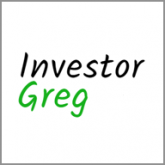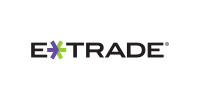Let's Explore the World of Investing From Scratch
Welcome to this podcast, the very first one in fact brought to you by investment portal InvestorGreg. We encourage you to sign up to InvestorGreg social media updates for financial news snippets and investing opportunities. You can find a written transcript of this podcast on the website.
So the purpose of this, our very first podcast is to acquaint absolute beginners with the investment markets. It’s important to know that even in volatile or choppy markets there are products you can invest in. Volatility brings its own opportunities and the investors that make money are those that understand where to place their funds in times like these.
At the time of recording this podcast a lot is happening in the markets. However a lot is always happening in the markets with political tensions, wars, trade wars and oversupply of oil all playing a part in moving the markets. As you learn the markets over the course of our podcasts you will come to understand what factors move the various markets in which direction and that really is the key to both trading and investing. The difference between the two being short term trades and longer term investments.
In times of instability, there is fear in the market. This fear is represented through declining stock prices, falling oil as people travel less and sell offs in the global equity markets. When the markets are bearish, which means declining, then investors usually run to the safe haven assets. These tend to be gold and other stores of wealth and more recently cryptocurrencies like Bitcoin which has once again risen closer to the $8000 mark. Real estate and alternative investments also tend to hold their prices quite well in markets like these, as people look for the solidity of bricks and mortar.
Usually the US dollar is conversely correlated to the safe haven assets like gold. When the USD strengthens then people move away from the safety of gold and start sending money back into US stocks and the USD.
So now let’s look at the difference between speculating and investing. When you see adverts for Forex or CFD brokers you can understand that this is speculation. What that means is you are speculating on whether the price of various assets is going to move up or down and by how much. With this type of trading you are not actually buying the underlying stock so you never actually own the product, for instance the company stock or the physical gold.
There are some real benefits to this kind of trading. Firstly you can trade in both rising or falling markets. We mentioned the word bearish before which means when a market or the economy is declining. Imagine a bear hiding behind the trees and you’ll quickly understand why a cautious bear is related to a cautious market. The opposite of this is a bullish market. If you can imagine a bull charging forward you can understand this means a rising market.
So if you buy low, then you sell at a higher price, your profit is the difference between the buy and sell price. That’s called going long. Conversely if markets are falling you can buy high and sell for lower, that’s called going short. Of course you need to factor in the brokers costs which usually take the form of a spread rather than a commission in this case. A spread is the difference between the buy price and sell price that the broker gives. It’s usually denoted in pips and you need to cover this small spread in order to then make your profit on top.
Another benefit of trading Forex or CFDs is that you don’t have to have huge amounts of money to get started. Buying a Netflix share in todays prices is $381 and that’s just for one share. If you want to have a sizable holding you will need to invest at least $10,000 to get started. If the stock crashes of course you will lose your money and you cant make money in declining markets. With CFDs you can deposit anything from $250 and up although brokers recommend you start with $1000 so you can start applying risk management strategies to your capital. We will cover risk management in another podcast but suffice to say never invest more than you can afford and split your capital into enough trades or across enough assets that you can weather a storm.
In terms of learning how to use platforms we do cover that here in InvestorGreg and the brokers that we recommend in our directory also give you education and training on how to use their platforms. Check out our recommended brokers lists for some of the best and most trustworthy brokers in the market. The more study you do, the better acquainted you become with a few markets, the greater is your profit potential. So it is better to understand say one or two currency pairs, one commodity like gold or oil and several stocks from different regions.
Automated trading lately has become very popular among retail traders and newbies. It’s also used by the big guys like financial institutions in the form of algorithmic trading or high frequency trading. You can access copy trading or autotrading through specialist brokers and add-on services that brokers may offer. In addition to copytrading which is where you copy the trades of other potentially more experienced investors or autotrading, where the platform trades for you, you can work with robo-advisors. This is a form of money management where a third party manages your investments on your behalf, but rather than being managed through people like wealth managers or money managers, it is a robot that manages, balances and optimizes your investments.
Usually they will conduct a questionnaire at first to try to understand your investor profile and financial objectives and from there they will suggest a portfolio that may be right for you. The robot will stay on top of the markets and sometimes employ strategies in order to find investments. It means you don’t have to be an expert in investing to get a really diversified portfolio. It also means you can step away from the computer when you need to and let the robot do its thing. Usually your involvement is to watch your funds grow and to pause investing when things aren’t going so great. We also have a list of robo-advisors on InvestorGreg which we have back tested and researched. So it is well worth checking those out too.
The final type of investing we will look at in this beginner’s podcast is real estate investing and crowdfunding. Like everything else real estate investing has now gone online with the advent of different products like those you see in our real estate investing directory listings. Before 2012 individual investors could not invest in private deals. Now investors can put their money together with a whole bunch of other people into projects or developments. That’s called crowdfunding and it means you need less capital to get involved in property investing.
Property is a great way to enhance and diversify your portfolio and the key to weather most storms, economically speaking is through diversity. That means investing in a range of assets, markets and regions. Crowdfunding means you can get access for a relatively low starting capital to some great projects which would usually be reserved for institutions or high net worth individuals. These kind of deals can also bring dividend payouts and can mean regular income for you. Fundrise one of the real estate platforms listed on our directory announced that their investors received over $9.4 million in total dividends in the second quarter of 2019. Another great perk to this kind of investing.
But remember that like other forms of investing real estate also has its own complexities, nuances, risks and rewards. In order to navigate the market successfully you will need to understand these before you start investing in crowdfunding platforms.
So that’s our quick whistlestop tour in great places to invest for beginners right now. Watch this space for our next podcast where we will go into more details on various beginner investment types. Thanks for listening and remember to follow us on social for regular updates on the markets and reviews of different brokers and products. Bye for now!
Recommended Financial Products
Full list of recommended Stock Brokers
Most Popular Articles
Featured Reviews




